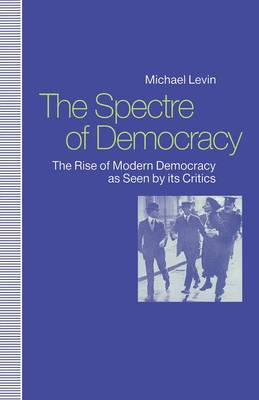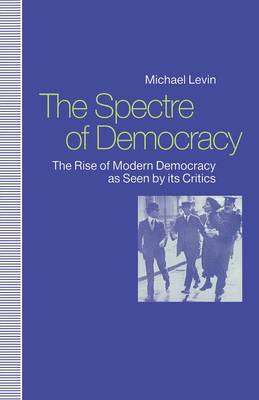
En raison d'une grêve chez bpost, votre commande pourrait être retardée. Vous avez besoin d’un livre rapidement ? Nos magasins vous accueillent à bras ouverts !
- Retrait gratuit dans votre magasin Club
- 7.000.000 titres dans notre catalogue
- Payer en toute sécurité
- Toujours un magasin près de chez vous
En raison de la grêve chez bpost, votre commande pourrait être retardée. Vous avez besoin d’un livre rapidement ? Nos magasins vous accueillent à bras ouverts !
- Retrait gratuit dans votre magasin Club
- 7.000.0000 titres dans notre catalogue
- Payer en toute sécurité
- Toujours un magasin près de chez vous
Spectre of Democracy
The Rise of Modern Democracy as Seen by Its Opponents
Michael Levin
Livre relié | Anglais
111,95 €
+ 223 points
Description
Levin traces the century and a half between the American and French revolutions and the end of the First World War, a key period for public debate over democratization. Examining the writings and ideology of a variety of anti-democratic thinkers, he illustrates how arguments for franchise extention had to contend with a deeply entrenched antipathy to democratic ideas. Only if we resurrect expressions of this opposition, he argues, and recall the dominant values that democracy challenged, are we able to understand the historical and ideological context from which modern western values and institutions emerged.
Spécifications
Parties prenantes
- Auteur(s) :
- Editeur:
Contenu
- Nombre de pages :
- 250
- Langue:
- Anglais
Caractéristiques
- EAN:
- 9780814750605
- Date de parution :
- 01-03-92
- Format:
- Livre relié
- Format numérique:
- Genaaid
- Dimensions :
- 152 mm x 229 mm
- Poids :
- 526 g

Les avis
Nous publions uniquement les avis qui respectent les conditions requises. Consultez nos conditions pour les avis.






